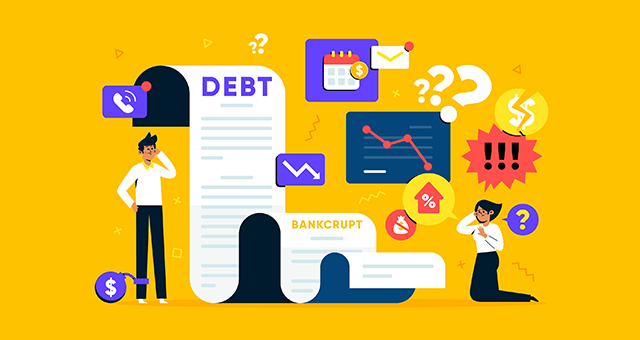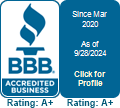
Choosing the Best Route: A Debt Management Plan or Debt Settlement
Choosing the best route to debt relief might be difficult amid the maze of financial difficulties. With various options available, it’s crucial to understand the nuances of each solution to make an informed decision. The two popular strategies are Debt settlement and Debt Management Plans (DMPs).
Although both alternatives provide debt relief, there are significant differences between them. In this article, we’ll examine the main distinctions between Debt Management Plans and Debt Settlement and the factors to consider before you decide which option best suits your objectives and financial circumstances.
Understanding Debt Management
Debt management entails creating a structured repayment plan with a credit counseling organization. Here’s how it typically works:
- Assessment: Your financial status, including income, expenses, and debts, is examined by a credit counselor.
- Budgeting: Both you and the counselor develop a budget that includes a debt repayment plan while covering essential expenses.
- Negotiation: The credit counselor contacts your creditors to negotiate lower interest rates, waived fees, or extended repayment terms.
- Consolidation: A DMP combines all your unsecured debt payments—typically credit card payments—into one, much like debt consolidation. Once the DMP is in place, you will make a single payment to the credit counseling agency. The money will subsequently be distributed to your debtors by the organization. The repayment plan usually lasts three to five years and has a small setup fee and a monthly service charge. However, there are typically no fees associated with credit counseling.
Pros
- Debt management solutions provide organized plans with perks like waived fees and reduced interest rates that let you pay off debt more quickly.
- As long as you make your payments on schedule, you save time and money, and generally, your credit score rises during your program.
- When you enroll in a debt management program, collectors will stop contacting you.
- The debt management program eliminates the requirement for you to submit monthly installments to all of your creditors. You make only one consolidated payment.
- You receive a monthly summary from the debt management provider with details of the activity and balances of your debt management accounts, allowing you to track your improvement.
Cons
- DMPs typically involve longer repayment periods, extending the time to become debt-free.
- It could temporarily impact your credit score.
- DMPs may not be applicable for certain types of debt, such as secured loans or debts in collections.
- Generally speaking, being on a DMP prevents you from opening new credit accounts. It can impact your purchasing power if you depend on credit cards and other forms of credit to get by.
- Not all creditors may accept the proposed terms.
- Many credit counseling organizations levy a significant initial fee.
Understanding Debt Settlement
Debt settlement, commonly known as debt negotiation or debt resolution, is negotiating a lower payment amount with creditors. Here’s how it typically works:
- Assessment: You assess your financial situation and determine which debts are eligible for settlement.
- Savings: Instead of paying creditors individually, you deposit funds into a dedicated savings account.
- Negotiation: Once you’ve saved a significant amount, you or a debt settlement company negotiates with creditors to settle the debts for a lump sum payment, typically less than the balance.
- Settlement: If successful, creditors agree to accept the negotiated amount as payment in full, and the debt will be referred to as settled.
Pros
- Debt Settlement can substantially reduce the total amount owed, helping you become debt-free faster.
- Unlike DMPs, which involve gradual repayment, Debt Settlement aims for a one-time settlement, providing quicker relief from debt.
- Debt Settlement companies have experience negotiating with creditors, maximizing the chances of favorable outcomes.
- Although debt settlement may harm your credit record more than a DMP, it won’t be as terrible as filing for bankruptcy.
- With a successful debt settlement program, you can pay off your debt in two to three years.
Cons
- Debt Settlement can negatively impact your credit score, as settled accounts are typically marked as “settled” or “charged off.”
- The forgiven debt amount can be deemed as taxable income, which could result in tax liabilities.
- Debt Settlement companies often charge fees for their services, which can be substantial and may be required upfront or spread out over time.
Choosing the Right Path
Here, we will delve deeper into the considerations involved in choosing between Debt Management (DMPs) and Debt Settlement, empowering you to take control of your financial future.
- Financial Situation: It is crucial to assess your current financial situation. It might be a suitable option if you have a steady income and can afford monthly payments. DMPs offer structured repayment plans that consolidate your debts into manageable monthly payments, making it easier to stay on track with your finances. On the other hand, if you’re facing severe financial hardship, such as job loss or medical emergencies, Debt Settlement may provide a more viable solution by negotiating reduced settlements with creditors.
- Types of Debts: Consider the types of debts you owe. DMP(s) deal with unsecured debts, such as credit card bills, medical bills, and personal loans. These plans may not apply to secured debts, such as mortgages, auto loans, or debts in collections. Debt Settlement, however, can be effective for both unsecured and some secured debts, offering the potential for significant savings on the total amount owed.
- Long-Term Goals: Clarify your long-term financial goals before deciding on a debt relief option. If your priority is to rebuild your credit and avoid severe credit damage, a Debt Management Plan might be the better choice. DMPs typically have a less severe impact on your credit score when compared to Debt Settlement. However, if your primary goal is to become debt-free as quickly as possible, and you’re willing to accept temporary credit damage, this may offer a faster route to debt relief.
- Professional Guidance: Seek advice from reputable debt relief companies or credit counselors to help you navigate your options. These professionals can assess your financial situation, evaluate the pros and cons of each strategy, and provide personalized recommendations based on your needs and goals. Working with a trusted advisor can give you peace of mind and confidence in your decision-making process.
- Legal and Tax Implications: Be aware of any legal or tax implications associated with your chosen debt relief option. Debt Settlement, for example, may have tax consequences, as the forgiven portion of your debt could be considered taxable income. Additionally, familiarize yourself with consumer protection laws and regulations that govern debt relief practices. It will ensure you are making informed decisions and protecting your rights.
- Fees and Costs: It’s essential to consider the financial implications of each debt relief option, including any fees associated with credit counseling or debt settlement services. Debt management agencies may charge setup and monthly maintenance fees, although these are typically modest and regulated. On the other hand, fees charged by debt settlement organizations are calculated based on the percentage of debt resolved, and these costs can add up. Carefully review and compare fee structures before committing to any debt relief program.
CONCLUSION
Ultimately, both Debt Management and Debt Settlement have their place in helping individuals regain control of their finances. It is crucial to research and carefully consider your options before you make a decision. Consulting with a financial advisor or credit counselor can also provide valuable insights tailored to your situation. Remember, the path to financial freedom may be challenging. But with determination and the right strategy, it is achievable!


